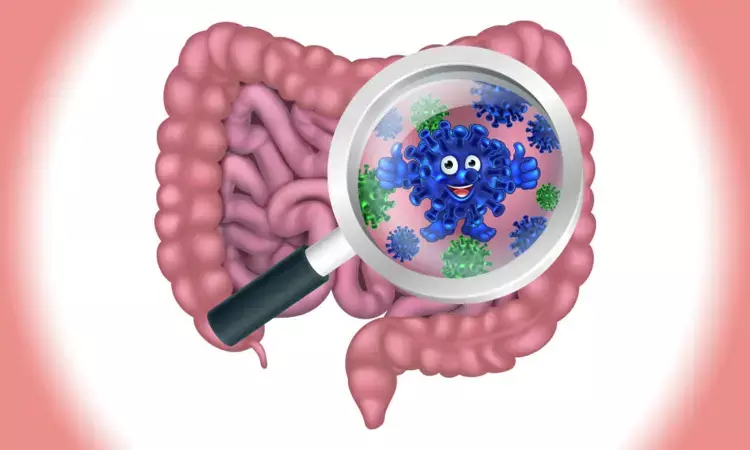- Home
- Medical news & Guidelines
- Anesthesiology
- Cardiology and CTVS
- Critical Care
- Dentistry
- Dermatology
- Diabetes and Endocrinology
- ENT
- Gastroenterology
- Medicine
- Nephrology
- Neurology
- Obstretics-Gynaecology
- Oncology
- Ophthalmology
- Orthopaedics
- Pediatrics-Neonatology
- Psychiatry
- Pulmonology
- Radiology
- Surgery
- Urology
- Laboratory Medicine
- Diet
- Nursing
- Paramedical
- Physiotherapy
- Health news
- Fact Check
- Bone Health Fact Check
- Brain Health Fact Check
- Cancer Related Fact Check
- Child Care Fact Check
- Dental and oral health fact check
- Diabetes and metabolic health fact check
- Diet and Nutrition Fact Check
- Eye and ENT Care Fact Check
- Fitness fact check
- Gut health fact check
- Heart health fact check
- Kidney health fact check
- Medical education fact check
- Men's health fact check
- Respiratory fact check
- Skin and hair care fact check
- Vaccine and Immunization fact check
- Women's health fact check
- AYUSH
- State News
- Andaman and Nicobar Islands
- Andhra Pradesh
- Arunachal Pradesh
- Assam
- Bihar
- Chandigarh
- Chattisgarh
- Dadra and Nagar Haveli
- Daman and Diu
- Delhi
- Goa
- Gujarat
- Haryana
- Himachal Pradesh
- Jammu & Kashmir
- Jharkhand
- Karnataka
- Kerala
- Ladakh
- Lakshadweep
- Madhya Pradesh
- Maharashtra
- Manipur
- Meghalaya
- Mizoram
- Nagaland
- Odisha
- Puducherry
- Punjab
- Rajasthan
- Sikkim
- Tamil Nadu
- Telangana
- Tripura
- Uttar Pradesh
- Uttrakhand
- West Bengal
- Medical Education
- Industry
Arachidonic acid enhances ferroptosis leading to occurrence of radiation-induced intestinal injury

China: A recent study for the first time has shown dietary arachidonic acid (AA) promotes the occurrence of radiation-induced intestinal injury (RIII).
The research, published in Redox Biology was led by Prof. HAN Wei from Hefei Institutes of Physical Science (HFIPS), Chinese Academy of Sciences (CAS).
RIII is a common gastrointestinal complication (incidence rate is about 80%) caused by radiotherapy on pelvic, abdominal, and retroperitoneal tumours. It may lead to the interruption of radiotherapy. At present, no unified and effective methods are available for the clinical treatment of RIII. Therefore, determining the pathogenesis of RIII is an important prerequisite for developing the strategies for RIII treatment.
In this study, the team utilized RNA sequencing analysis to investigate the possible involvement of ferroptosis in RIII mice's intestinal tissue. As a result, the levels of lipid peroxidation markers, 4-hydroxynonenal (4-HNE) and malondialdehyde (MDA), were significantly elevated in these mice.
The researchers also discovered that Ferrostatin-1 (Fer-1), a ferroptosis inhibitor, was successful in mitigating both death and intestinal fibrosis in RIII mice. Furthermore, in cultured intestinal epithelial cells (IECs), organoids and mouse models, researchers found that AA, the omega-6 essential fatty acid, is a key factor in radiation-induced ferroptosis. Exogenous AA triggered radiation-induced ferroptosis.
Subsequent mechanistic studies revealed that the activation of STAT1-IRF1 positively regulated the expression of ACSL4, which promoted the occurrence of ferroptosis after radiation. On the other hand, the AMPK signaling pathway was activated by AA and played a negative regulatory role in radiation-induced ferroptosis.
The above results indicated that the STAT1-IRF1-ACSL4 and AMPK signaling pathways were potential molecular targets for the strategies development of RIII prevention and treatment. Arachidonic acid, an essential dietary fatty acid, was an important risk factor for ferroptosis-mediated RIII. This study also suggested that targeted dietary nutrition control, which was expected to alleviate RIII, should be implemented during radiotherapy.
Reference:
Peizhong Kong, Miaomiao Yang, Ying Wang, K.N. Yu, Lijun Wu, Wei Han, Ferroptosis triggered by STAT1- IRF1-ACSL4 pathway was involved in radiation-induced intestinal injury, Redox Biology, https://doi.org/10.1016/j.redox.2023.102857
Dr Kamal Kant Kohli-MBBS, DTCD- a chest specialist with more than 30 years of practice and a flair for writing clinical articles, Dr Kamal Kant Kohli joined Medical Dialogues as a Chief Editor of Medical News. Besides writing articles, as an editor, he proofreads and verifies all the medical content published on Medical Dialogues including those coming from journals, studies,medical conferences,guidelines etc. Email: drkohli@medicaldialogues.in. Contact no. 011-43720751


